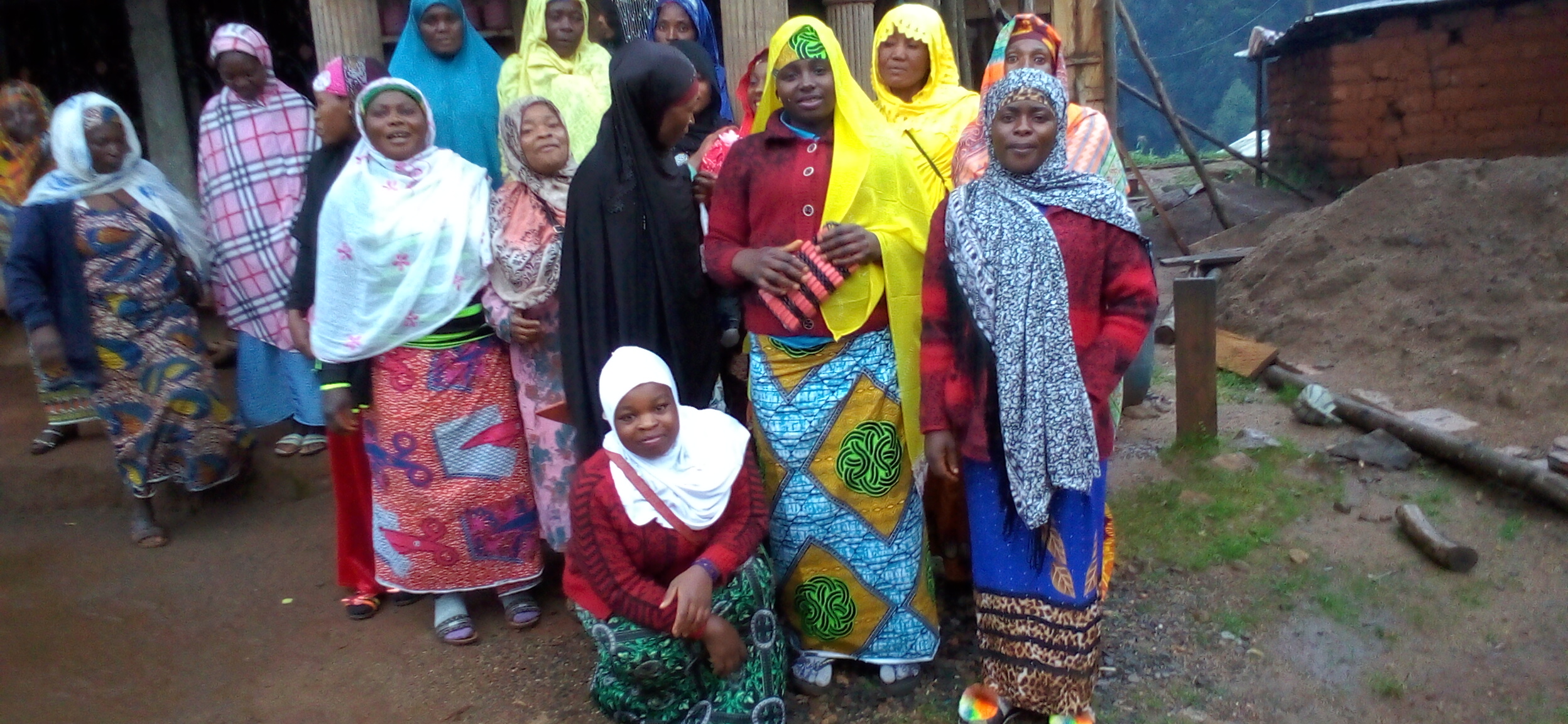Report on Gender Based Violence (GBV) and Menstrual Hygiene Seminar with the “Salama” Women in Banten/ Mbosha 15th July 2022
A Report on Gender Based Violence (GBV) and Menstrual Hygiene Seminar with the “Salama” Women in Banten/ Mbosha 15th July 2022
Gender based violence (GBV) in Cameroon has been has been an existing reality prior to the crises and occurs in areas where guns are silent. With the present crises now especially in the NW and SW regions, this situation has now increased.
LELIV org members, being aware of such a situation has embarked on sensitizing the local population about these ills. LELIV uses the SASA (Start Awareness, Support Action) approach in curbing or stopping this malpractice. The goal in life is to balance power, so when experiences power imbalance then there a problem.
Power imbalance is being expressed when one partner (or a groups of partners) is able to dominate decision-making or otherwise asserts power in ways that disadvantages others partners or are not in the best interest towards achieving the partnership objectives. There exist four (4) types of power; power over, power with, power to, and power within.
Power Over is built on force, coercion, dominate and control and motivates largely through fear.
Power With is shared power that grows out of collaboration and relationships is built on respect, mutual support, shared power, solidarity, influence, empowerment and collaborative decision making. It is linked to social power.
Power To is the power to make a difference to create something new, to achieve goals. It is built on the unique potential of every person to shape his/her life and world.
Power Within is related to a person’s self-worth and self- knowledge. It includes an ability to recognize individual differences while respecting others. It allows people to recognize their “power to” and “power with”, and believe they can make a difference.
If any of the above form of power is violated, then a problem arises. Power imbalance rest on our opinions (not laws) and perspectives. How we perceive things depending from the angle you find yourself.
SASA methodology emphasizes on blame, participate positively. The society is govern by two (2) main concepts. The mindset of feminism and patriarchy. So to balance power, we have to read and understand the concept on feminism and patriarchy and then see where we can strike the balance. Feminism incorporates the position that the society prioritizes the male point of view and that women are treated unjustly in these societies.
Patriarchy is a system of society or government in which the father or eldest male is head of the family and descent is reckoned through the male line.
Participants were encouraged to avoid blame, participate positively and then we bring the balance.
The next topic treated was menstrual hygiene. Good menstrual hygiene is changing sanitary napkins or tampons within every 4-6hrs to establish virginal hygiene. Menstrual blood, when released from the body attracts various organisms from our bodies, which multiply in the warmth of the blood and cause irritation, rashes or urinary tract infections.
Managing menstrual hygiene has always been a problem for some girls and women. This situation has worsen with the ongoing crises being experienced now in the NW and SW regions. So to effectively manage their menstruation, girls and women require access to water, sanitation and hygiene (WASH) facilities, affordable and appropriate menstrual hygiene materials, information on good practices and a supporting environment where they can manage can manage menstruation without embarrassment or stigma.
The participants were briefed on what type of sanitary pads to use, how to use, when to use, how to handle re-useable pads etc. It has been noticed that the lack of means of hygienic management of menstruation can cause discomfort and psychological stress and adds to the shame and sometimes depression that women and girls experience because of menstruation-related taboos and stigma.
